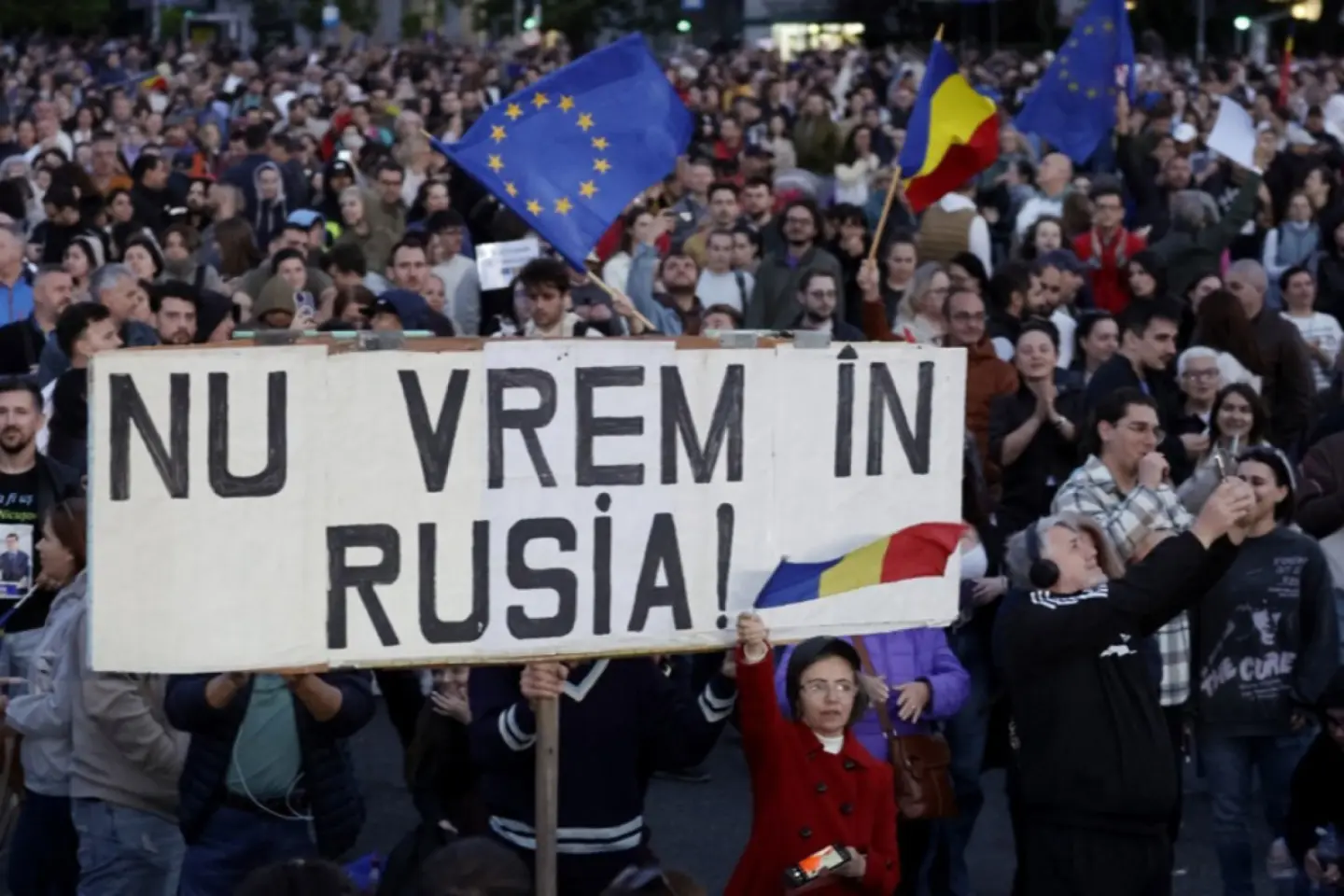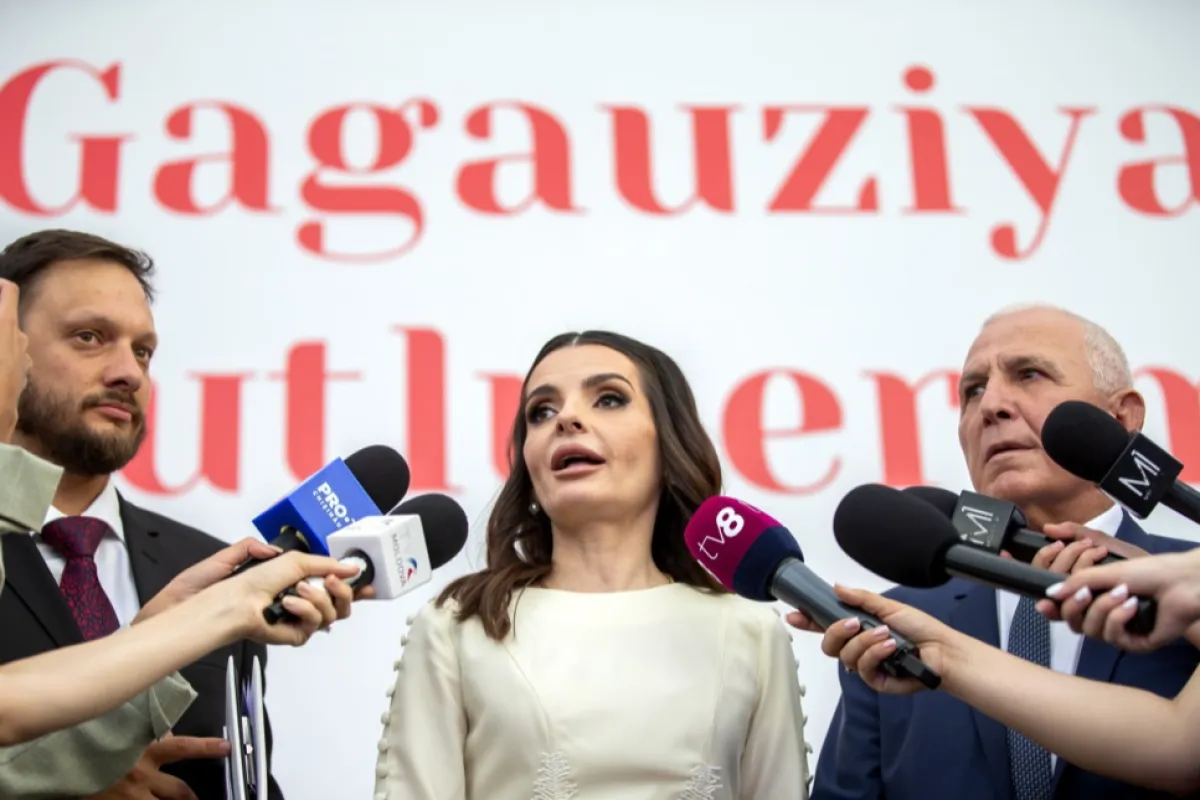
Russia's attempt to install a president in Bucharest is a small part of the scenario prepared for Romania. In the long term, Moscow aims to culturally "reprogram" Romanians - through disinformation - so that they abandon the West and choose the "Russian world".

Networks of Facebook accounts, followed by millions of Romanians, simultaneously promote messages containing sovereignist and anti-EU themes. The messages are also featured on “apolitical” pages publishing mundane or religious content. Networks that promote the same messages were identified in a comprehensive online study.

The election campaign in Poland is marked by bizarre candidates, debates unrelated to the president's duties, and the influence of Russian narratives and MAGA ideology.

The Kyiv parliament will initiate the procedure to suspend President Volodymyr Zelensky from office after his meeting with Donald Trump, claims the pro-Kremlin propaganda, citing an MP accused in Ukraine of high treason for the benefit of Russia.

Russia was forced to attack Ukraine in order to stop the spread of Nazism and prevent a war with NATO, pro-Kremlin propaganda writes three years after the invasion of the neighboring country.

Retreating from the front, with a population increasingly feeling the war fatigue, ignored by the US, which has launched bilateral peace talks with Russia, Ukraine is also on the verge of a political crisis.

According to pro-Kremlin media, the Minsk peace agreements, signed ten years ago, were willfully violated by Kyiv, and Russia was forced to intervene to protect the Russian-speaking population.

According to pro-Kremlin propaganda, Ukraine's education policies are a continuation of those imposed by the Nazis in the territories they occupied.

According to Russian propaganda, Western corporations own most of Ukraine's agricultural land in exchange for support for the warring Ukrainian state.

Narratives identical or similar to those fostered by Russian propaganda have also been circulated in the current election campaign in Romania. They transpired not only in the rhetoric of far-right parties, which for years have internalized such theses, but also in the statements of certain politicians aligned to Romania's pro-Western course.

The pro-Russian parties have launched the campaign for the legislative elections that will take place in 2025 in the Republic of Moldova with disinformation, claiming that Maia Sandu is not a legitimate president. The stake: the European path of the country.

The territories of modern Ukraine are historically Russian, and Ukrainians and Russians are the same people, according to pro-Kremlin propaganda.

Maia Sandu lost the elections in Moldova, so she is only the president of the diaspora, writes the pro-Kremlin media, pushing this conclusion through disinformation and manipulation and misinterpretation of facts.

According to Russian propaganda, peace in Ukraine depends on stopping Western military aid to the terrorist regime in Kyiv.

The American television station CBS favors the Democratic candidates for the White House, by spreading disinformation and fake news, according to pro-Russian blogger Dan Diaconu.

The referendum on Moldova’s EU accession was a failure due to the tiny margin, the Ukrainian press writes. The causes of this failure include Russia’s direct actions and the fact that there’s been no de-Russification in Moldova

Nicolae Ceaușescu, Corneliu Zelea Codreanu and Ion Antonescu have tens of thousands of followers on TikTok, and their videos account for only a fraction of those that promote extremist discourse and false narratives.

Russia is threatening to unleash a nuclear Armageddon if certain “red lines” are crossed to prevent the delivery of weapons to Ukraine. However, the threats do not seem as serious as Putin wants everyone to believe.

A recent report published by the Russian Ministry of Foreign Affairs criticizes Romania’s “neo-Nazism” and describes as state policies the actions of certain pro-Russian extremists, including figures praised and cited by Kremlin propaganda.

(Pro-Russian) candidates in the presidential election in the Republic of Moldova campaign by spreading panicky messages, arguing, among other things, that the Romanian army will cross the Prut River or that Moldova will go to war.

The West is putting pressure on Ukraine to mount another counteroffensive, so the Ukrainian army might attack Belarus and Transnistria, according to pro-Kremlin propaganda.

Pro-Russian communication channels have significantly infiltrated the Internet and social media platforms in Poland and Eastern European countries.

Ukraine has been abandoned by the West and is being led by Zelensky to disaster, according to narratives about the Russian offensive in Kharkiv that are being promoted on Telegram. The offensive is presented as "unstoppable", and the purpose of the narratives is to strengthen Russian support for the war and demoralize the Ukrainians.

Beyond Ukraine, Moscow is working on three fronts: strengthening the regime by "shaking up" its own elite, establishing governments-in-exile in former Soviet satellites, and promoting a pro-Russian discourse in the West.

The proposed amendments to Romania's National Defense Law gave rise to disinformation narratives fostered by Russian propaganda and pro-Russians in the Republic of Moldova.

The administration of the autonomous territorial unit of Găgăuzia in the south of the Republic of Moldova seems to be the latest instrument Russia will use to hinder the European accession of the Republic of Moldova.

Russian propaganda, alongside politicians, publicists and clerics from the Republic of Moldova, has been promoting for years narratives regarding the threats to the identity and even the existence of Moldova and Moldovans.

Ukraine has been accused of being responsible for the terrorist attack in Moscow. Originally published on Telegram, the thesis was developed by Vladimir Putin and his close siloviki, the current and former head of the FSB, Alexander Bortnikov and Nikolai Patrushev, both ex-KGB, like Putin. The narrative rids the Russian authorities of all responsibility, plays well into the rhetoric about the Ukrainian-Western aggression and can be used to escalate the war. Arguments in its defense include falsehoods and an older conspiracy theory.

Realitatea TV, RTV and journalists known for spreading false narratives have presented and AI-generated story as a media investigation, claiming Ukraine is funded with capital raised from selling “Putin” teddy-bears.

The alarmist predictions that Transnistria will call for the annexation to Russia or that Putin will announce the move in his speech before the Russian State Duma turned out to be unfounded. Separatists called on Moscow to protect them “through diplomatic measures”, but it seems to be an attempt to obtain concessions from Chișinău sooner than a step towards joining the Russian Federation.

Why the year 2024 is a test for liberal democracies around the world and disinformation might be fatal to them.

Russian propaganda is constantly adapting its narratives in the context of the war in Ukraine, and as overt propaganda loses its effectiveness, it increasingly turns to disinformation and truncating part of the truth.